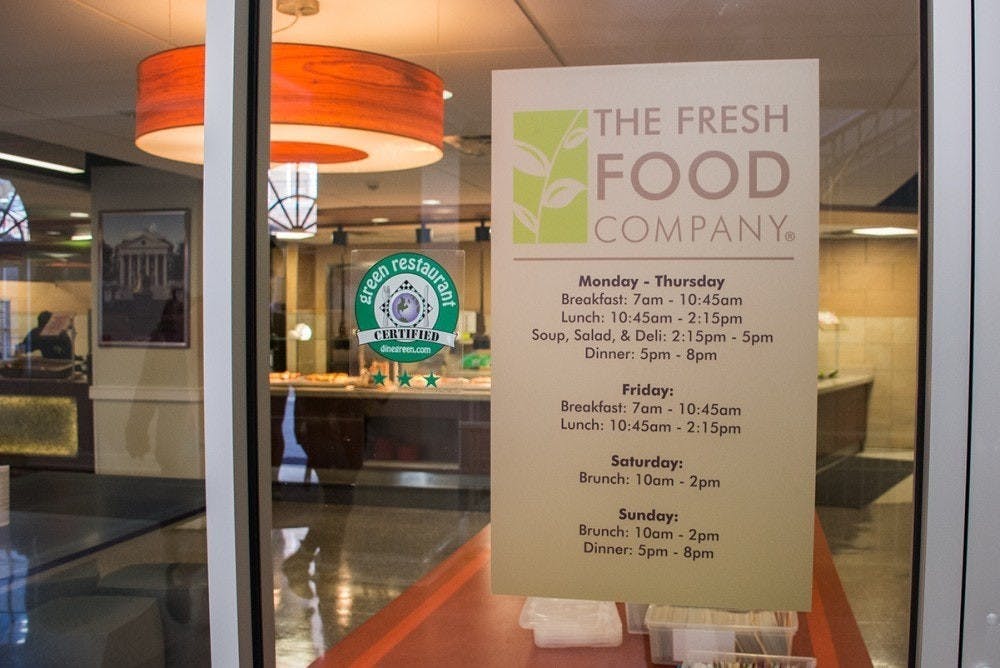Earlier this month, President Jim Ryan’s released a statement promising that University administration would implement a $15 minimum wage for both university workers and contracted employees starting on Jan. 1, 2020. The statement followed a report that came from Ryan’s community working group, which he created to improve the relationship between the University and larger Charlottesville community. In the report, the working group released results to a survey that showed living wages to be the issue of top priority amongst Charlottesville workers and residents. In response, not only did Ryan propose a minimum wage of $15 per hour for University employees, but he also assured contracted workers that he and his team would find a way to pay them a similar wage, despite current legal barriers.
Many have celebrated Ryan’s decision to implement a living wage for University workers, but there is still no clear plan for raising the wages of contracted employees. Currently, the starting wage for contracted employees is $10.65 per hour, which is less than the University’s base wage of $12.38 per hour and far lower than $15. While the University office of Human Resources office has claimed that this new base wage will not increase student tuition, there could be negative outcome for students from an increase in the wages of contracted employees.
The University is of one of about 40 percent of colleges that contract companies to run their dining halls and currently contracts with Aramark for these services. These companies are in charge of both pricing their food and paying employees. As both the price of meal plans and Aramark’s profits increase, the University must question whether Aramark should have a continued contractual existence on Grounds.
In 2016, Aramark reported revenues of $14.4 billion. Additionally, a Huffington Post article even named Aramark as one of the ten companies that pays its workers the least in the United States, and its CEO’s “per hour wage is about 1,700 times that of some of his employees.” Despite its large profits and highly-paid executives, Aramark still fails to provide a living wage to its employees. Furthermore, the financial success of Aramark calls to account the company’s priorities. Audits and university contracts with Aramak reveal that the money students pay to purchase a meal plan is not always accurately reflected by the costs associated with employees’ salaries or the food that students are being served. Instead, this revenue often funds contracting deals between Aramark and the institutions in which the corporation provides certain services.
Many universities require that subcontractors price meals fairly in their contracts, but the price of meal plans for students is still on the rise. In fact, over the past 10 years, college meal plans have increased about 50 percent. On average, universities charge around $4,500 for a three-meal-a-day meal plan per academic year. This breaks down to about $18.75 per day. While these increases have made meal plans exceedingly expensive, dining worker wages and food quality have remained subpar. There have even been complaints from dining hall chefs at Yale University about the declining quality of food that Aramark provides.
But getting rid of Aramark will not be easy. In fact, in 2014 the University renewed its contract with Aramark for another 20 years. Within this 20 year time period, Aramark has agreed to provide the University with escrow funds that will amount to $70 million in total. Additionally, the University is one of many colleges, such as University of Tennessee and Texas A&M, that has made partnerships with dining contractors in order to help pay for improvements around their campuses. If U.Va. puts its contract with Aramark in jeopardy, it could lose these funds. In fact, the University may even have to pay a pro rata portion of the funds back to Aramark.
Due to the financial ties to Aramark, it is seemingly unlikely that Ryan will be able to take real action in support of a living wage for contracted workers. Students must remember that the living wage issue has not yet been solved and continue to support contracted workers at the University. The Living Wage Campaign at U.Va. was previously the longest-running unsuccessful wage campaign at a collegiate institution, but the perseverance of the activists and supporters finally did make a difference for many wage-earning workers. In order for this movement to carry on, students must continue to fight for progress at the University.
Victoria McKelvey is an Opinion Columnist for The Cavalier Daily. She can be reached at opinion@cavalierdaily.com.







